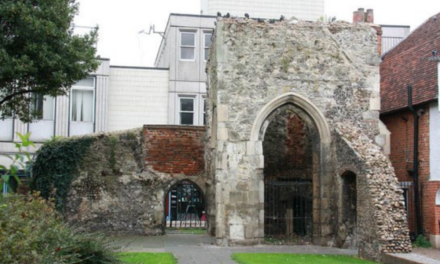Natalie Campbell, a CEO and university chancellor who was longlisted to be Sadiq Khan’s Conservative challenger next year, has pledged to run as a “centrist, middle of the road candidate”.
The entrepreneur said she will use the results of her ‘What London Wants’ survey to build her manifesto, though she is already committed to putting the proposed Bakerloo line extension “firmly back on the table”.
She argued it was “madness” for south-east London to be cut off from the Tube network and that she would progress the currently ‘paused’ extension by taking a fresh look at the project’s costs and infrastructure requirements.
Ms Campbell said the scheme – which would see the line extended from its current terminus at Elephant and Castle down to Lewisham and potentially beyond – was particularly important for unlocking more housing in London, “because that is where a lot of the development potential is”.
But she also warned that it was “reductive” to assume that the answer to the capital’s housing crisis is to build “more, more, more” homes.

She said: “We need the right homes in the right places, and actually if we create a credible rental market… we won’t have the issues that we’ve got at the moment in terms of rental prices absolutely soaring.”
She added that she would not seek the power to impose rent controls – long requested from the Government by Mr Khan – saying the policy would not work: “You can’t just throw a tax at people and expect the market to shift.”
Instead, Ms Campbell, who is co-CEO of bottled water company Belu and chancellor of the University of Westminster, said she would look to create more ‘mayoral development corporations’. Such bodies currently exist around the Olympic Park in Stratford and at Old Oak and Park Royal in west London, where a vast new railway station is due to be served by HS2.
She said that this move, as well as reclassifying some land for development, would allow her to take a “hands-on approach” to getting homes “not just started, but actually built”.
On policing, Ms Campbell said she was “still committed to the idea that transformation and reform might need to happen by shutting the Met down” and replacing it with a new police force, because attempts at improving its culture have so far been “too little, too late”.
She said: “Communities are furious with the police. That is not going to change in a year, it’s not going to change in four years, with the sort of review process that we have.”
Ms Campbell pointed to the breaking up and replacement of the Royal Ulster Constabulary in Northern Ireland in 2001.
“The fact that there was a clear stop and restart again broke down a lot of the cultural barriers and issues that made it hard for the police and communities to have a sense of trust,” she said.
Looking to the election, she claimed the Tories had made a “poor choice” by selecting Susan Hall, calling her “a terrible candidate” who will fight “a dog whistle campaign”.
Ms Hall has pledged to reverse Mr Khan’s outer London expansion of the Ultra low emission zone (Ulez) “on day one” of her mayoralty, arguing that the £12.50 daily penalty for non-compliant vehicles places an unfair burden on people during a cost of living crisis.
While running for the Conservative candidacy, Ms Campbell also said she “wouldn’t continue with the expansion”, but she now says she would “weigh up the cost-benefit analysis” of removing or keeping it, warning that the price-tag of removing outer London from the zone, now that the expansion has taken place, would be “huge”.
“But I still think it’s a tax on Londoners that shouldn’t be there,” she added.
Ms Campbell plans to reach out to young and ethnic minority voters, saying: “Speaking to those communities that feel forgotten, that feel like they’re not being heard, I do believe that I can galvanise the vote needed to win.”
Next year’s mayoral election – scheduled for May 2, 2024 – will be first to be held using first past the post (FPTP), following a change introduced by the Government. Voters were previously able to express a first and second choice for mayor through the supplementary vote system.
Ms Campbell claimed however that rather than votes being squeezed towards Mr Khan or Ms Hall as a result of the change, the new system was in fact “an opportunity” for her.
“Yes, the two candidates in the main parties will have the most name recognition, but that’s only because they’ll get the most media coverage,” she said.
“A candidate cutting through and actually speaking to Londoners – especially the 58 per cent that didn’t vote [at the last mayoral election in 2021] – could secure over a million votes.
“It’s absolutely not impossible, and if we think about the number of independent candidates that have been successful at a local level – there’s an appetite for change, there’s momentum there.”
Join the exciting world of cryptocurrency trading with ByBit! As a new trader, you can benefit from a $10 bonus and up to $1,000 in rewards when you register using our referral link. With ByBit’s user-friendly platform and advanced trading tools, you can take advantage of cryptocurrency volatility and potentially make significant profits. Don’t miss this opportunity – sign up now and start trading!







Recent Comments